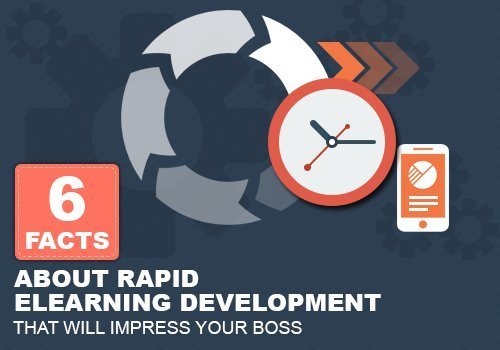Rapid eLearning Facts That Define The Right Training Content Provider
There are some rapid eLearning facts that every content provider should abide by, regardless of how long they’ve been in the industry or which niche they cater to. Think of them as the golden rules that help you find the right provider for your training content needs. For example, an outsourcing partner who has an SME on board should be at the top of your list since that’s a crucial component of rapid eLearning success for your company. Let’s look at 7 essential facts that define the perfect online training solutions—some of them may just surprise you.
1. SMEs Play A Pivotal Role
SMEs are the primary source of information for rapid eLearning development. It may be rapid, but you still need to deliver factual info and key takeaways to your team. You need an SME to summarize the content and choose the ideal activities, preferably ones that improve knowledge absorption and active recall. They also work in tandem with IDs, graphic designers, and admins every step of the way, from creating storyboards to editing the final version. Their primary task is to include all the essentials without causing cognitive overload.
2. Templates Are Just A Content Development Springboard
Your content shouldn’t look like everyone else’s just because it’s rapid eLearning. Many organizations fall into the “template trap.” It has a nice ring to it, but you should avoid cookie-cutter content at all costs. The right provider for your training content needs knows that pre-built layouts are just a springboard. They might change the color scheme, include fresh graphics, and adjust placeholders, as well as cull some of the existing content if it’s no longer relevant or relatable.
3. Prototypes Are The Norm
There’s a common misconception that rapid eLearning skips prototyping altogether. Who has time to create a working example when you’re racing the clock? In reality, prototypes are a crucial part of rapid eLearning development since they prevent lengthy revisions and help you identify potential sticking points. It doesn’t have to be polished; the point is to get everything on the screen and work on the kinks before minor issues become major problems that derail your entire project.
4. Successful Rapid eLearning Begins And Ends With Feedback
There’s always time for feedback. In fact, rapid eLearning development has feedback bookends. Start with a Training Needs Analysis to identify pain points and conduct surveys among your team. Then get their input post-launch to look for emerging gaps and evaluate rapid eLearning success. Of course, there’s also feedback throughout the design process too. Usually, after each phase or revision/prototyping round. In the case of outsourcing, the right provider should reach out to their clients for feedback, as well. For example, they contact you every week to share updates and ask for input.
5. ID Principles Are The Core Of Rapid eLearning Experiences
In addition to expert know-how, you need ID principles to make the information stick. This also provides the structure for your rapid eLearning course and taps into employee motivation. For instance, the outsourcing partner uses specific ID models or theories to facilitate knowledge transfer. Don’t hesitate to include your preferred ID approach in the outsourcing RFP or ask the content provider to list the common principles and models they use for each project. Another option is to set up a meeting to discuss their strategy and how it can benefit your bottom line. How does their approach apply to your use case? Which resources do they need from you? Do they already have the necessary tools?
6. Short Bursts Boost Employee Engagement
There’s some debate about whether the term “rapid eLearning” applies to development, front-end participation, or both. I think it’s the latter. One of the perks of the rapid design approach is that you shorten seat time without cutting L&D corners. Employees still build vital skills and bridge knowledge gaps since the content is more targeted and concise. For example, an hour-long course becomes three smaller modules, and each centers on a task, sub-topic, or core competency. That said, you can bend the rules a little and develop longer rapid eLearning courses, provided that you condense the information and make it easily digestible.
7. There’s More Than One Rapid eLearning Approach
Most people associate rapid eLearning design with content curation. For example, you gather resources online or comb through your archives. Then plug everything into a template. However, there are several ways to approach rapid eLearning development, including content conversion and translation. To illustrate, you already have a top-notch compliance course that has all the essential rules and regulations. The catch is that it’s in English, so your Spanish-speaking employees miss out on all the benefits, or they have to rely on automatic translation software. An eLearning content provider can help you translate and localize the content so that everyone gets a personalized experience. They don’t just convert the text into different languages. They also add images and data that are culturally relevant to your regional teams.
Conclusion
One final rapid eLearning fact is that diversity is the key to unlocking employee engagement. Mix it up with different content and online training activities to personalize the experience. The right provider should know how to create content that’s interactive and memorable, even if they’re working on a tight schedule. In fact, you can hire them for a test project to see how they perform under pressure. Do they still deliver high-quality content that’s creative and eye-catching, or do they fall into the template trap?








